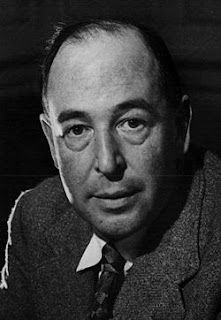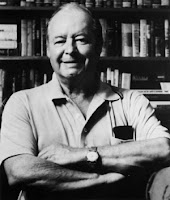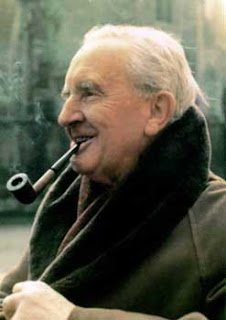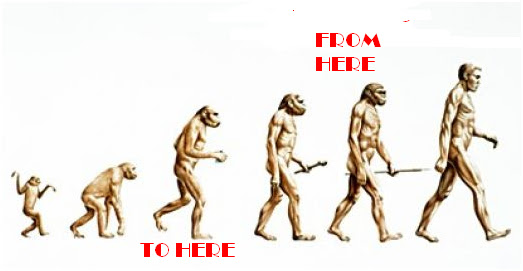7. R. L. Stine
 |
| Photo source: www.scholastic.ca |
Long before I came to know the existence of Dixon’s books, reading Stine’s Goosebumps series was my addiction. I often read 2-3 series during weekends and 1-2, at least, at weekdays. These were the books that surround my elementary years, seriously. R. L. Stine, without a doubt, was my hero that time. Technically, Goosebumps is a horror-fixated fiction novels where it conceptualize in scaring the chickens out of the children. Remember when you can’t sleep at night when you read one of these hair-raising write-ups, this is the one. I just wonder, though, why I never had the chance to read the 7 most controversial kid’s book. I really wonder why.
6. Franklin W. Dixon
According to a number of scholars, Franklin W. Dixon, the printed author, is just a pseudonym used as a fake name of an unknown author. On the other hand, there were rumors that Hardy Boys were written by diverse authors (seems to be a Homer conspiracy, eh). You might have also encountered the gossips that Edward Stratemeyer, the one who fabricated the characters, utilized the pseudonym (Franklin W. Dixon) so as not to embarrass his family if the books turn to be a failure–that, I don’t know why. Nevertheless, this was not my concern when I was in my 5th grade. I was endeavored to read as many Hardy Boys as I can. I once desired to be a detective, but that was long time ago. Nevermind.
5. Carolyn Keene
If you chanced upon Hardy Boys, reading Nancy Drew is inevitable. Believe me. I was urged to read Keene’s writings due to its distinct connection with Dixon’s Hardy Boys. I can still remember my friend’s reaction when he saw me reading a Nancy Drew series; “You sure about that?” Of course I am. I do know that he’s exaggerating, though, because all the while, he thought that it was a book about girls’ puppy love. Oh, hell no! Carolyn Keene, however, is also one of the pseudonyms that Stratemeyer used. I’m interested in knowing how many pseudonyms he has on his sleeves.
4. J. R. R. Tolkien
Before “The Lord of the Rings” installments became a hit in cinemas, Tolkien’s books were not that noted, at least, during my elementary life. Yes, if not for the Elvish Language, J.R.R Tolkien will never even be that famous today. Although I can really say that he’s a great writer and grammarian, there are still people who doubted his ability in writing. Honestly, I can name a few of those people who don’t give a damn about Tolkien not until the film was created. See how arrogant they are? Those bunch of filthy Edward Cullens. Anyway, when I was working as a part-time student assistant (this is to support my educational needs) in my 6th year as an elementary student, I encountered Tolkien’s The Lord of The Ring. I can still even remember how our librarian barely places the book on the shelf. She keeps it on her desk to anticipate those students who don’t know how to take care of a freaking precious piece after borrowing. Through that, I reckon a feeling that LOTR is possibly a good one to read. I was not allowed to bring it at home, though. But, I enjoyed every minute I spent on J. R. R. Tolkien’s The Lord of the Rings. By the way, during that time, LOTR was published in a single copy–that includes the three (3) series. The scenes in the book are quite altered in the motion picture, though.
3. C. S. Lewis
 Of course, you can never be a real literary student if you don’t know who Clive Staples Lewis is. Known for his books, “The Chronicles of Narnia” and “The Screwtape Letters,” this writer is one of my favorites. He’s canonized books conveys biblical allusions and theological metaphors. You’ll have a hard time deciphering his message if you’re not, at least, that religiously oriented. My band mate introduced Lewis’ books to me; he said that I might find interest and inspiration on this prominent author. Indeed, he was not wrong. C. S. Lewis, in a certain time, became my addiction. After watching the first released of “The Chronicles of Narnia,” I was fueled to read his books. A friend of mine even scolded me for not returning his C. S. Lewis book right away. That won’t enter your mind when you’re glued to reading such marvelous work. To my friend: “I’m sorry, though.”
Of course, you can never be a real literary student if you don’t know who Clive Staples Lewis is. Known for his books, “The Chronicles of Narnia” and “The Screwtape Letters,” this writer is one of my favorites. He’s canonized books conveys biblical allusions and theological metaphors. You’ll have a hard time deciphering his message if you’re not, at least, that religiously oriented. My band mate introduced Lewis’ books to me; he said that I might find interest and inspiration on this prominent author. Indeed, he was not wrong. C. S. Lewis, in a certain time, became my addiction. After watching the first released of “The Chronicles of Narnia,” I was fueled to read his books. A friend of mine even scolded me for not returning his C. S. Lewis book right away. That won’t enter your mind when you’re glued to reading such marvelous work. To my friend: “I’m sorry, though.”2. J. K. Rowling
I know. Just let me explain first: I told you before that I somehow worked as a student assistant in my sponsor’s library. Because of this, I managed to know more about Rowling’s identity inch by inch. Back then, the Hogwarts mania was not that polluted. I mean, Rowling’s Harry Potter was neither a talk of the town nor famous. You would see “The Chamber of Secrets” not part of a bookstore’s top-seller. Why? It is because Harry Potter, in a technical view, is not that easy to grasp on. The way Rowling weaved the words and concept of this book is highly fascination that you would never imagine Emma Watson to be that beautiful in the film. And, disappointed that Harry Potter (in the movie) is not that cool except the descriptions Rowling defined in the book. Honestly, there was a time that I got hooked into reading J. K. Rowling’s Harry Potter. My mind was not even equipped to fabricate Hogwarts, pretty much like in the movie, in my mind. At the same time, you’ll only know that Harry Potter exists if you go into a library. This is what I observed during my time. Okay? I’m not generalizing things. Nonetheless, I can commend Rowling’s writing style. Oh, you would be astonished to know that the recently published “The Cuckoo’s Calling (another detective story, yeah!), known to be published by a writer called Robert Galbraith, is actually a product of Rowling’s mind. Yes, the name Robert Galbraith is her pen name or pseudonym. You’ll understand what I’m talking about if you’ll read this book; you’ll see the similarities of Rowling’s writing in “The Cuckoo’s Calling.”
1. Neil Gaiman
I would kill myself if Gaiman is not part of this list. The English author short fictions novels and graphic novels is the reason why "Neverwhere" and "American Gods" are created. These books are actually my favorite, although I’m digging to read his "The Ocean at the End of the Lane." Again, my band mate (Presario) introduced his writings to me. And, without any hesitation, I read Coraline. Indeed, I was totally amazed with Gaiman’s concept when it comes to writing. However, only a few of people find his books superb. But, it didn't convince me to stop marveling on his works. I guess the degree he applies in allusions, which I think a notch higher than Lewis’, is one of the factors that made people to turn the tables. Nevertheless, if you’re a lover of Victorian fairy tales and culture, consider reading :Stardust;" you’ll see a deeper distinction of how great Neil Gaiman is. On the other hand, his refusal (I think) to go beyond the pop culture level, had helped in not getting the real breakthrough in mainstream writing. For me, though, it’s acceptable. We never know what’s on his mind. I still love Neil Gaiman’s perspective in book writing. Lastly, one thing that I’m proud of him, he won both "Newberry" and "Carnegie" medals for the efforts he did on “The Graveyard Book.” You’ll see these proclamations at the back of his newly written books and in Wikipedia.org, of course.
Alright, there you go. I just showcased my favorite all-time authors. Although there are a number of writers to be credited of like Robert Ludlum (The Bourne Identity), Arthur Conan Doyle (Sherlock Holmes), Miguel de Cervantes (Don Quixote), Leo Tolstoy (Anna Karanina), etc., the above mentioned writers (Stephenie Meyer is not in my line, though) are still on top of my A-list. Anyway, you can let me know who your favorites are on the comment section below. Just don’t get me wrong when it comes to Neil Gaiman. Just kidding!































0 comments:
Post a Comment